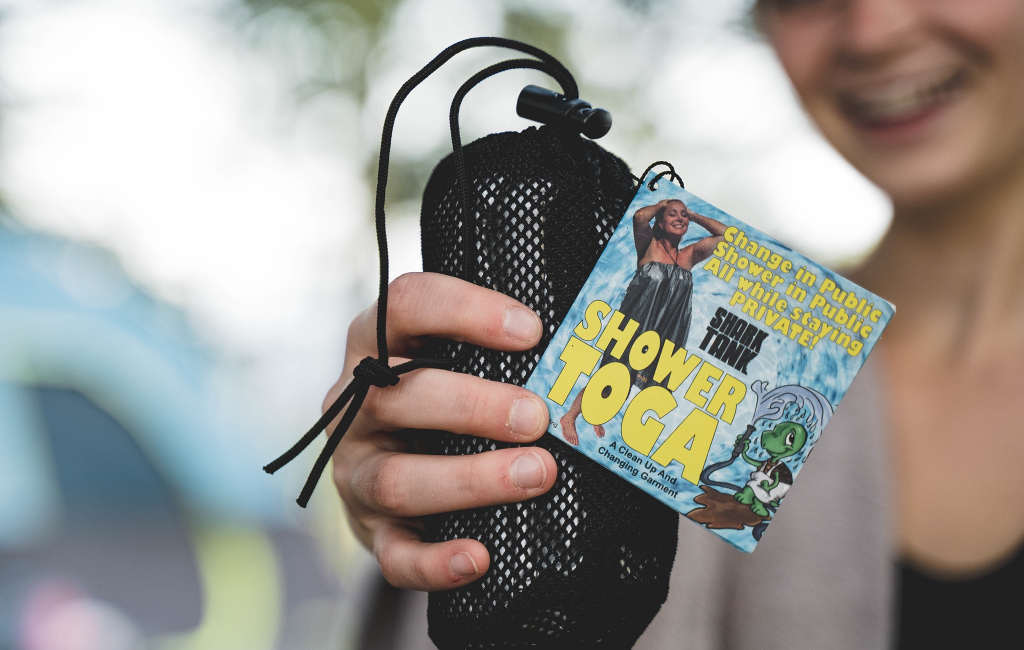GOGA Goat Yoga
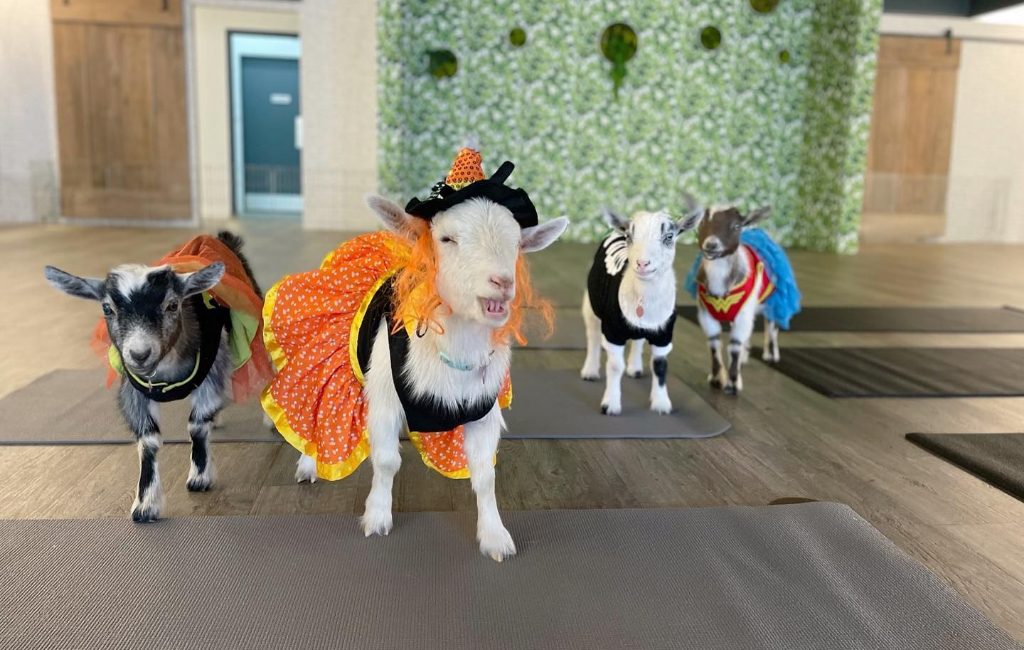
NO DEAL
EPISODE SUMMARY
🕓 Air Date: March 3, 2019
Asking For:
$50,000 for 15%
Investor:
No Deal
Deal:
No Deal
PRODUCT SUMMARY
GOGA Goat Yoga combines traditional yoga with the playful interaction of baby goats, aiming to enhance the yoga experience through animal therapy and a unique twist.
WATCH HERE
IN A RUSH?
Click these to jump to the section you want to read.
Background Story
GOGA Goat Yoga, founded by Rachael Phillips and Trey Kitchen, has its roots in the aftermath of Hurricane Harvey and a desire to blend the benefits of yoga with the playful interaction of baby goats. Rachael and Trey, hailing from Austin, Texas, embarked on this unique venture to bring solace and joy to people through a fusion of ancient practice and animal therapy. Rachael Phillips, with a passion for yoga and a keen entrepreneurial spirit, saw an opportunity to create something extraordinary.
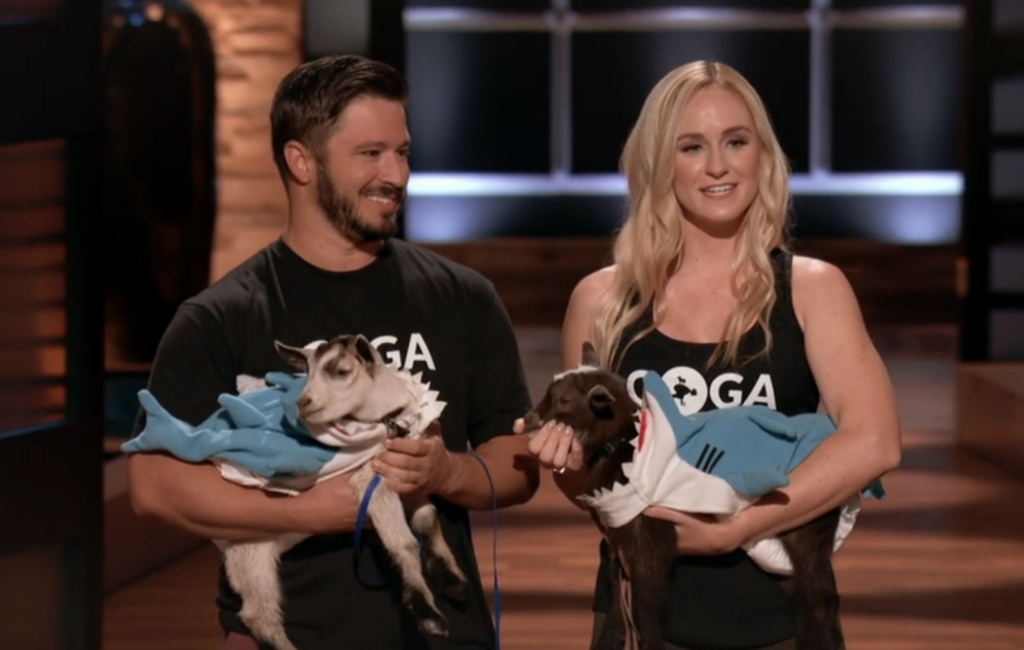
Trey Kitchen, with a background tied to his mother’s goat-raising business, provided the essential link to ensure a consistent supply of baby goats, integral to the success of GOGA Goat Yoga. The founders, inspired by YouTube videos showcasing goat yoga, decided to introduce this novel concept to Austin as a fundraising initiative post-Hurricane Harvey. The therapeutic benefits of interacting with animals, particularly goats, became the driving force behind GOGA Goat Yoga. They noticed how the presence of goats during yoga sessions helped individuals cope with stress and served as a source of comfort.
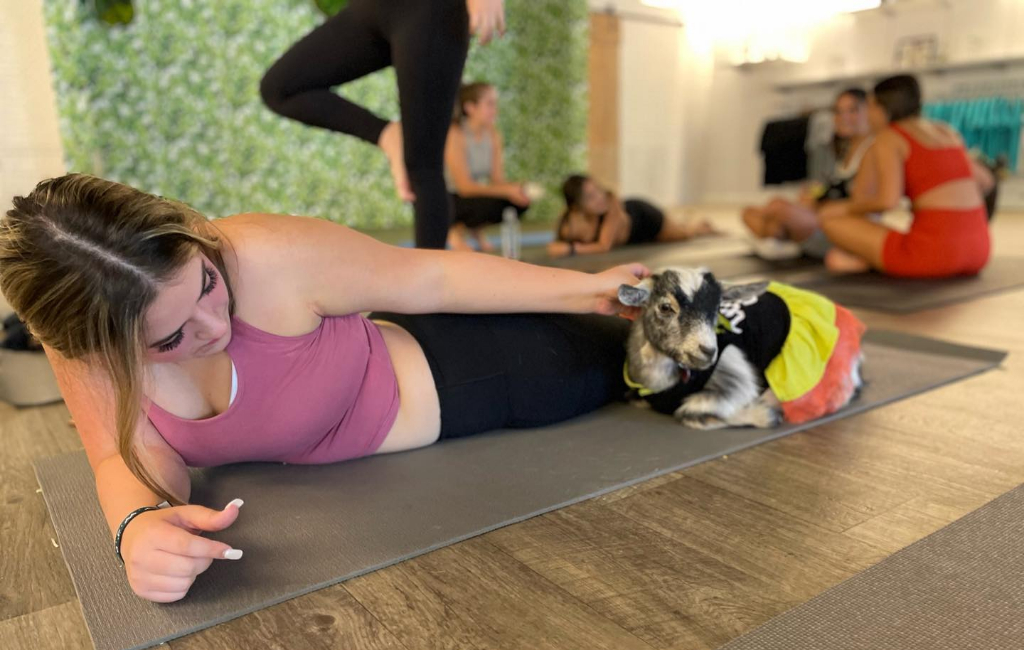
Starting on a rooftop in downtown Austin, GOGA Goat Yoga gradually expanded to secure two locations. One space served as a temporary studio in exchange for foot traffic, fostering collaboration with neighboring retailers, while the other marked a more permanent establishment. The founders, recognizing the novelty of their idea, aimed to make yoga accessible to a wider audience, including those who may be new to traditional yoga practices. Their unique approach, emphasizing the playful nature of baby goats, sets GOGA Goat Yoga apart and reflects the founders’ commitment to combining well-being, community, and the joy of interacting with these adorable animals.
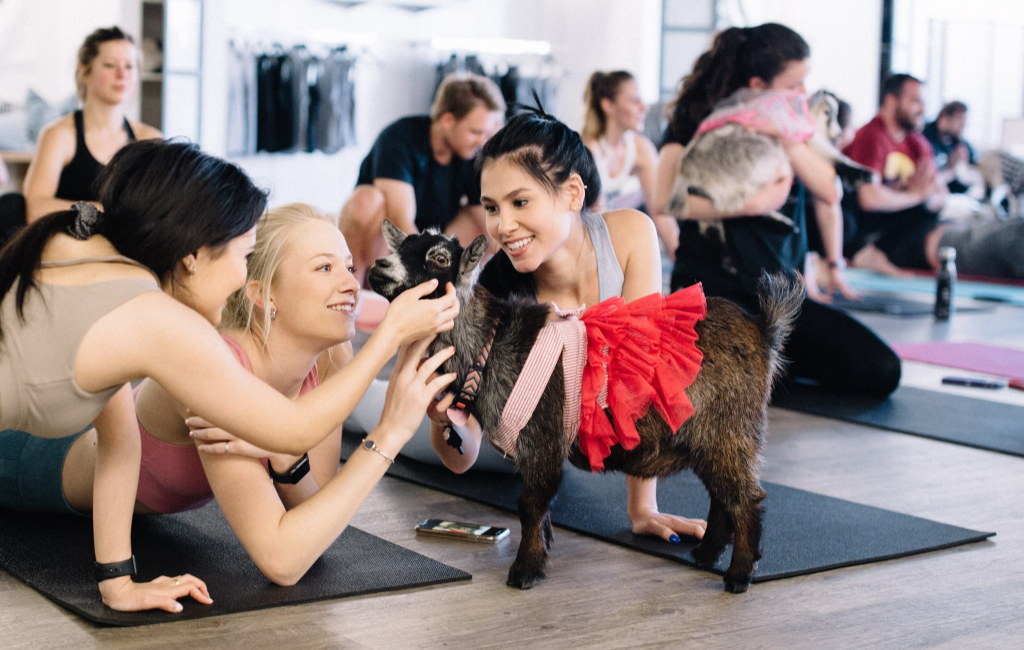
The Product
GOGA Goat Yoga, a distinctive blend of traditional yoga and the playful presence of baby goats, offers a one-of-a-kind experience that goes beyond conventional yoga practices. In a typical session, participants engage in yoga poses while baby goats roam freely, interacting with them in various ways. The goats may climb onto participants’ backs during poses like downward dog, providing an unexpected and delightful element to the practice.
The sessions are designed to be inclusive and therapeutic, aiming to enhance mindfulness, flexibility, and strength while fostering a sense of joy and connection with the animals. The founders emphasize that animals, particularly goats, naturally bring people to the present moment and can be profoundly therapeutic.
GOGA Goat Yoga can be experienced through regular classes or private events, catering to a diverse range of participants, from yoga enthusiasts to those seeking a unique and enjoyable workout. Prices vary, with regular Goat Yoga classes typically priced between $20 and $30 per person, while private events are offered at $40 per person. Participants can sign up for classes and events through the GOGA Goat Yoga website, making it accessible and convenient for those interested in this distinctive and entertaining form of yoga.
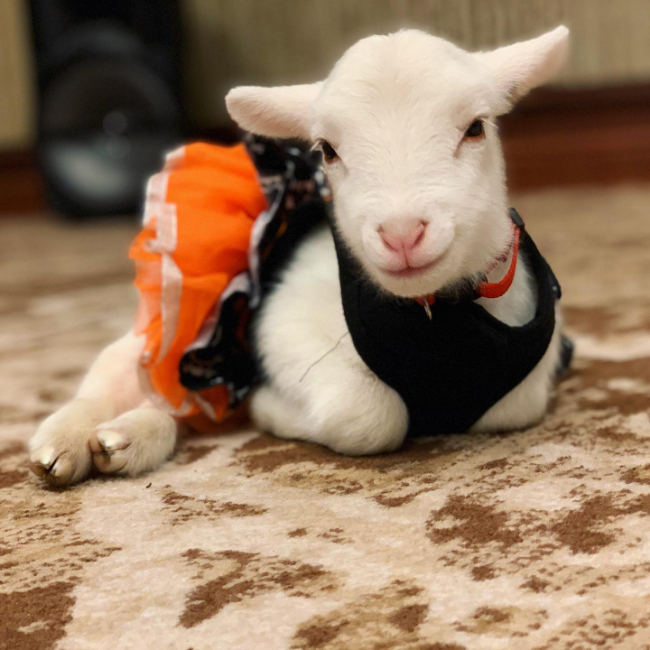
How It Went
The company’s position before Shark Tank
GOGA Goat Yoga has displayed commendable performance in its first year of operation, achieving a revenue milestone of $250,000. Despite facing challenges such as the absence of air conditioning and electricity, the company has demonstrated resilience, operating successfully without these amenities. The founders, Rachael Phillips and Trey Kitchen, have navigated through the unique challenges of conducting yoga sessions with baby goats in a novel and unconventional setting. The company’s strategic partnerships have contributed to its success, particularly the collaboration with Trey’s mother, Roxie, who ensures a steady supply of baby goats for the sessions.
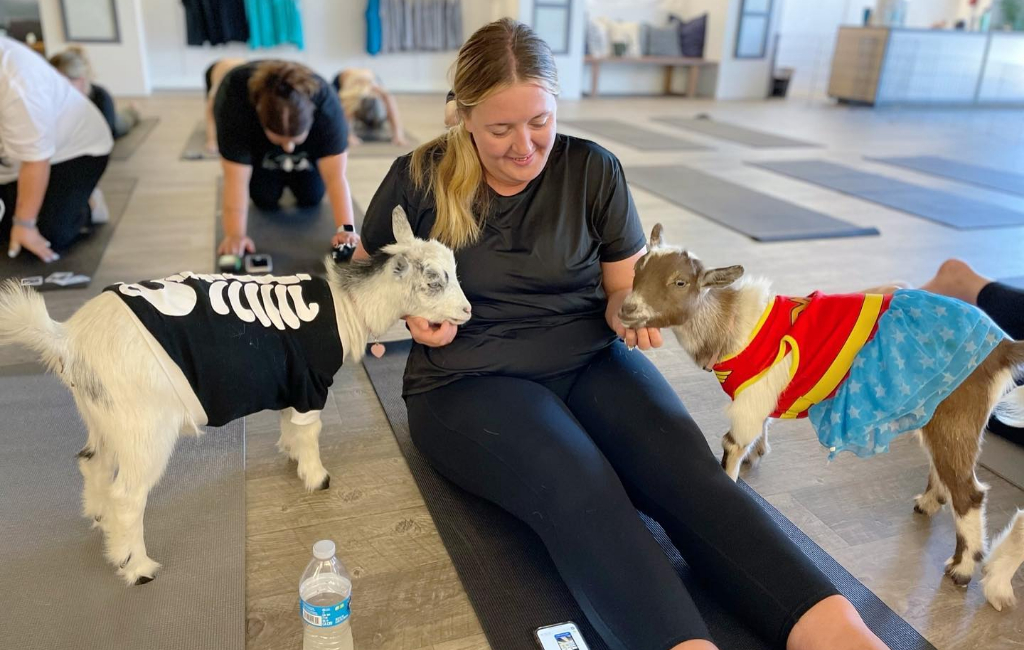
This partnership is crucial in maintaining the quality and consistency of the GOGA Goat Yoga experience, as the goats used are specifically bred for companionship rather than for meat or milk. GOGA Goat Yoga’s primary revenue stream is derived from Goat Yoga sessions, with private events also contributing to the overall income. While the company currently operates without traditional amenities like AC and electricity, its financial health is robust, having generated a notable revenue in its first year.
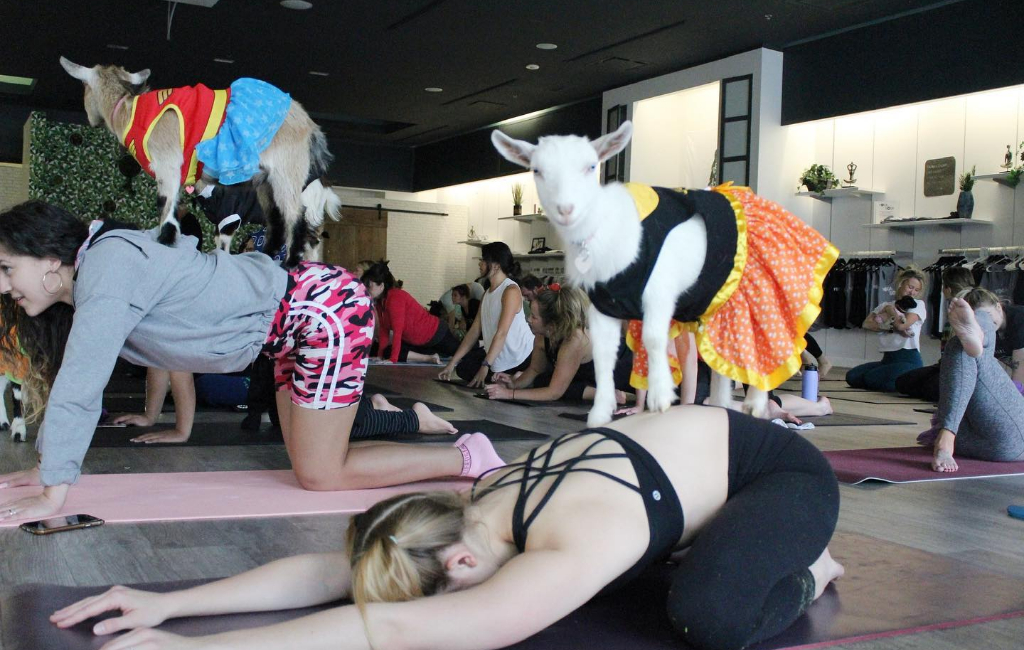
As for funding, the founders have not disclosed specific details about their financing structure or any external investments. It appears that the company is self-sustaining based on the revenue generated from its unique yoga offerings. The company’s current structure involves hiring external yoga instructors rather than having Rachael and Trey conduct the sessions themselves. This allows them to focus on the business aspects and growth strategies. The business model revolves around offering a niche yoga experience, with the intention to expand into regular yoga classes in the future, marking a transition into the next phase of their business plan.
The Negotiations:
In the Shark Tank episode featuring GOGA Goat Yoga, the negotiations unfolded with a mix of intrigue and skepticism from the Sharks. Rachael Phillips and Trey Kitchen entered seeking a $50,000 investment for a 15% equity stake in their company. However, despite the novelty and success of GOGA Goat Yoga, the Sharks, each with their unique perspectives, raised concerns and ultimately led to no deal being secured.
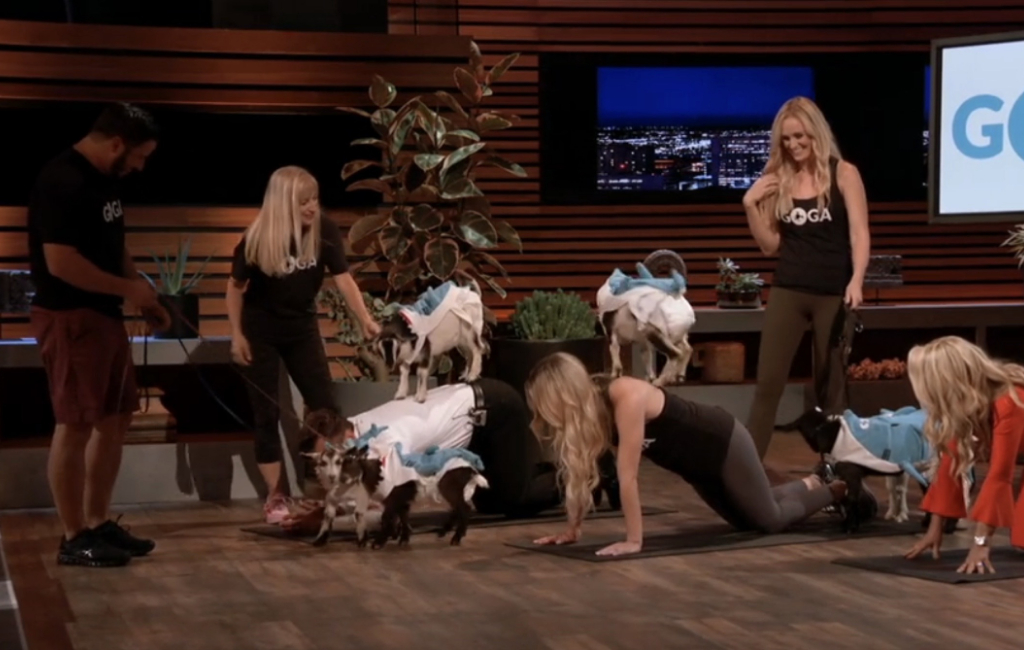
Kevin O’Leary, known for his direct and sometimes unconventional approach, expressed a personal interest in goat meat but humorously declined to invest in GOGA Goat Yoga. Mark Cuban and Lori Greiner, while appreciating the novelty of the concept, voiced concerns about scalability and the long-term viability of the business. Mark Cuban, in particular, suggested keeping the goat yoga sessions on the rooftop, maintaining it as a niche market rather than attempting widespread adoption.
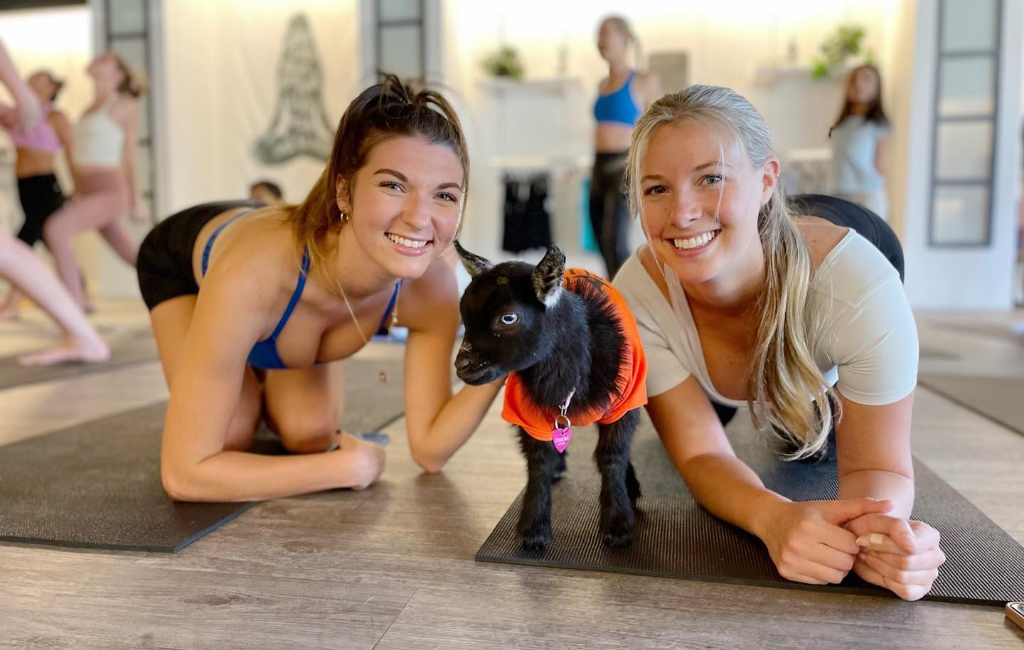
Daymond John expressed discomfort with the founders not being yoga instructors, highlighting the importance of expertise in the industry. Barbara Corcoran echoed concerns about potential competition in the growing Goat Yoga market. Ultimately, despite the positive feedback on the uniqueness of the idea, all Sharks decided not to invest, signaling a collective apprehension about the scalability and long-term success of GOGA Goat Yoga. The founders gracefully accepted the Sharks’ decisions, thanking them for the opportunity and expressing gratitude for the feedback. While they left the tank without a deal, the exposure from the show and the evident success of their business showcased that GOGA Goat Yoga had already established a unique and thriving niche in the wellness industry.







